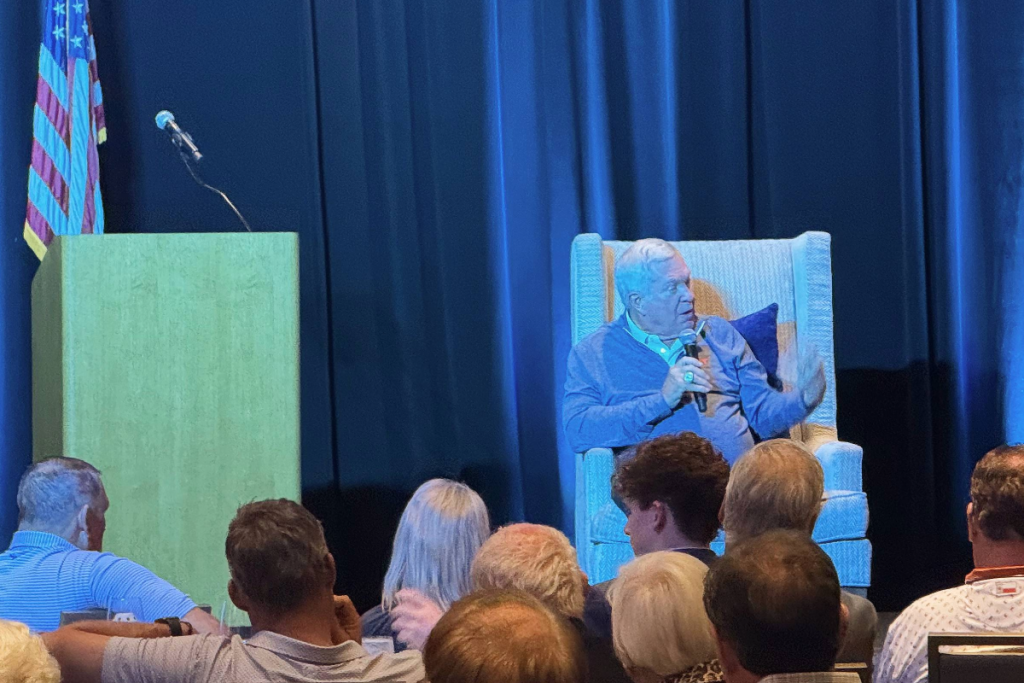Mack Brown joins Horseshoe Bay Sports Club as a speaker

Mack Brown delivers his remarks to a full audience at the Horseshoe Bay Sports Club banquet on November 20, 2025. Staff photo by Maci Cottingham.
The Rudy Davalos Horseshoe Bay Sports Club welcomed former University of Texas Longhorns head football coach Mack Brown on Nov. 20, who led the Longhorns to the 2005 national championship, as the keynote speaker for its 2025 banquet, continuing the club’s tradition of featuring influential sports leaders.
The Sports Club meets monthly, hosting guest speakers and community sports mixers while working toward its goal of awarding scholarships to senior athletes in Llano, Marble Falls, and Burnet beginning in 2026.
Brown’s visit highlighted both the club’s mission and the broader conversations happening in college athletics today.
Throughout his remarks, Brown focused on the rapidly shifting landscape of college sports, discussing how name, image, and likeness (NIL) and the transfer portal have brought meaningful opportunities to athletes, but have also introduced academic challenges and competitive instability.
The National Collegiate Athletic Association’s NIL policy, implemented in 2021, allows student-athletes to receive compensation for use of their name, image, and likeness. The transfer portal, implemented in 2018, allows student-athletes to change schools to pursue opportunities with different sports teams.
“The (National Football League) has a better plan for the first time than college football,” Brown told the crowd. “There’s still a core of great kids that are playing that love the game, that care about the game.”
He cautioned that constant roster turnover and increasing financial pressures threaten the stability of athletic departments across the country.
“We can’t keep doing what we’re doing,” he said. “It’s absolutely not sustainable.”
Brown compared the current trajectory of college football to the NFL, noting that NIL could soon force programs to operate more like professional franchises, including limiting how freely schools can hire and fire coaches. He also pointed to expanded playoff schedules as a major strain on coaching staff, who must simultaneously practice, recruit, and prepare without breaks.
“We don’t have a schedule that fits or works,” he said.
Brown questioned whether the recent expansion of the playoffs from four to 12 teams will actually promote competitive balance, arguing that early matchups between “more talented teams,” and “lesser teams,” will still lead to predictable outcomes.
Brown highlighted several memorable moments from his career, including the iconic 2005 season. He described how the team prepared by comparing their performance and statistics each week to powerhouse University of Southern California–which had won back-to-back national titles– and whom Texas ultimately defeated in the championship game.
“You can’t be in the moment because it’s so big,” Brown said of coaching in the championship game.
He closed on a more personal note, sharing how deeply the emotional weight of coaching can affect those in leadership roles. From losing a student-athlete to navigating the aftermath of the deadly 1999 Texas A&M bonfire collapse, Brown said these tragedies shaped his understanding of the job.
“That’s what coaching is really about – decisions where while people are worried about the game, I’m worried about this family,” he said.


